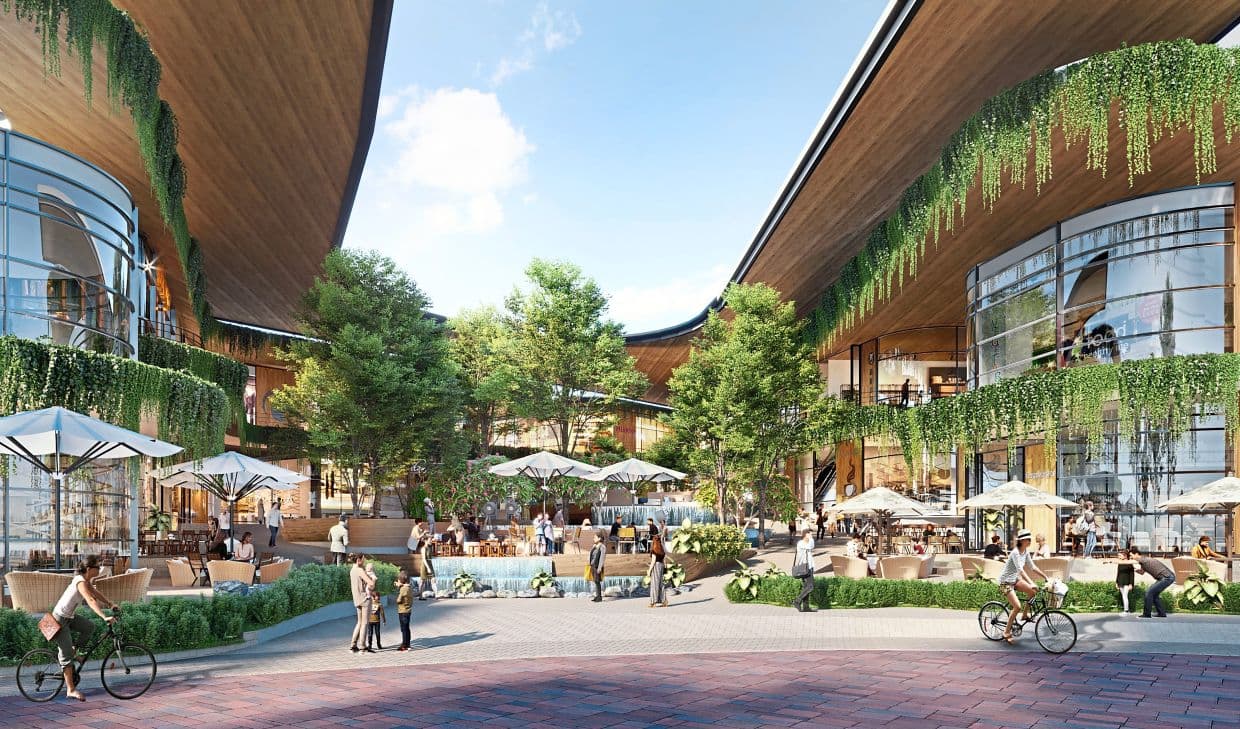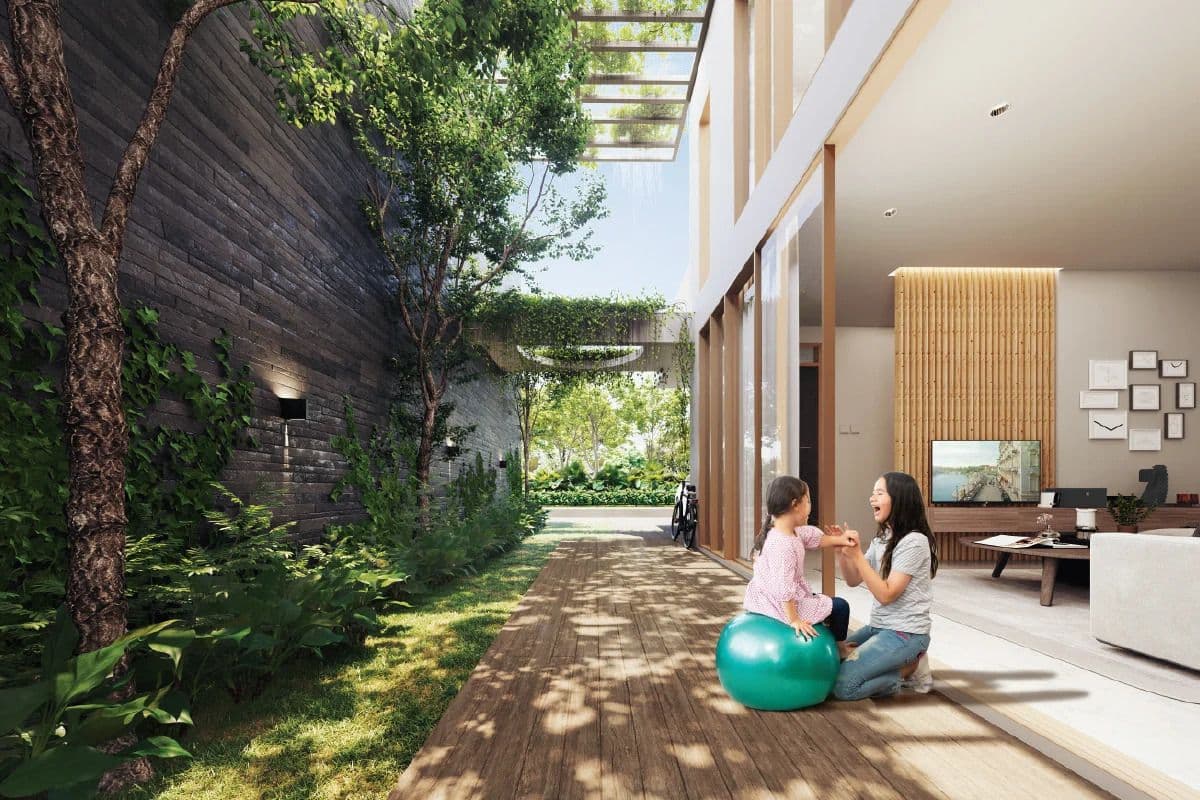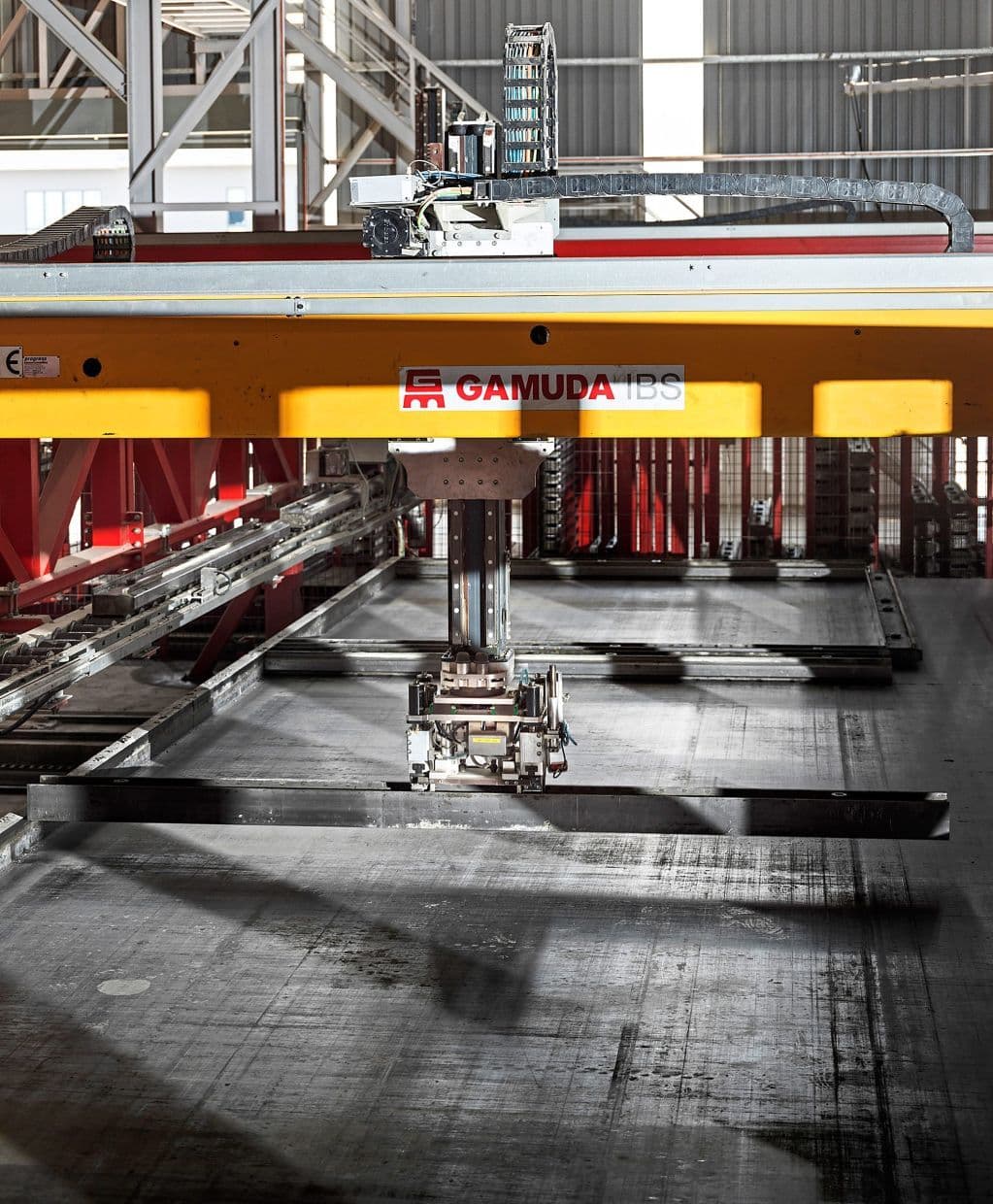Digitalisation leads to greater efficiency
24 November 2025
by The Edge
Gamuda Land, the property arm of Gamuda Bhd, had a very productive FY2024 ended July 31. It achieved a record RM5 billion in sales and posted a revenue of RM4.2 billion and net profit of RM411 million, contributing 28% and 45% to group revenue and group profit respectively.
In Gamuda Bhd’s FY2024 integrated annual report, Gamuda Land CEO Chu Wai Lune mentioned that its 11 quick-turnaround projects (QTPs) and RM7.7 billion in unbilled sales had placed it in a good position to achieve its revenue target of RM8.5 billion by FY2028.

In the FY2025 integrated annual report, the property arm achieved revenue of RM3.8 billion and net profit of RM378 million. Total sales came in at RM4.1 billion despite softer domestic demand, supported by stronger sales in Vietnam.
Reflecting on its FY2024 performance, Chu explains that several key developments helped it reach its sales target. One of them was Eaton Park in Ho Chi Minh City, Vietnam, where four of the six towers had been fully sold, while the fifth was 80% sold, and the sixth is scheduled for launch by end-2025. In Malaysia, projects such as Gamuda Cove and Gamuda Gardens contributed greatly to sales.
The developer forecasts that in the next five years, the sales contributions of its projects will be 35% from Malaysia, 35% from Vietnam, 15% from Singapore and 15% from the UK and Australia.
Chu says the growth is not a surprise as it had planned what it wanted to achieve and, despite changes along the way, had not wavered from its goals.
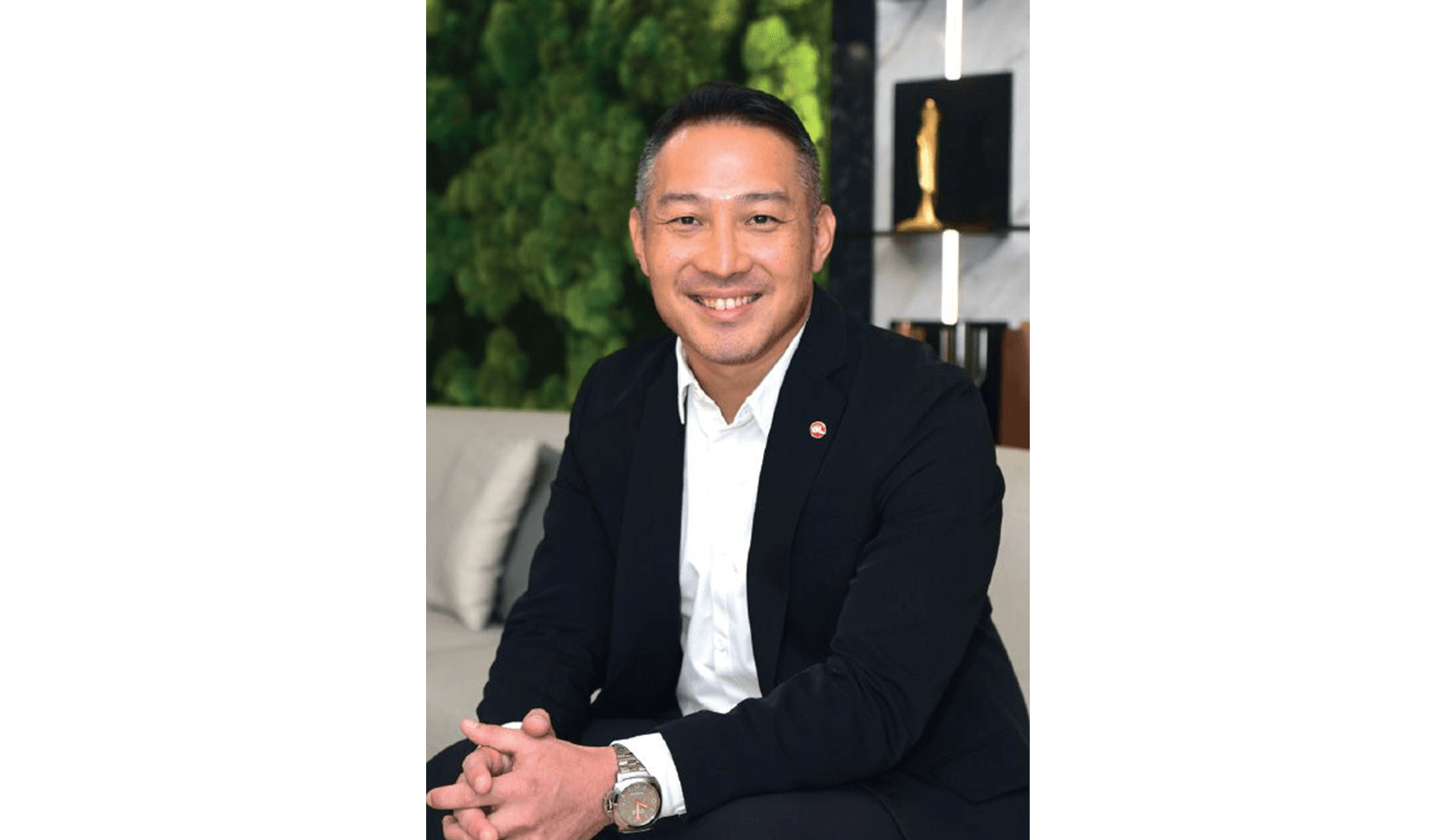
"When a company grows, it doesn’t mean you need to hire more people, because when we adopt more AI, our efficiency increases.” - Chu
“No matter what happens to the economy or if costs rise, it is bound to happen as and when you plan. This is something that constantly comes but for us, because of our experience, our value engineering, we are able to go around it. So we have planned at least 20% CAGR (compound annual growth rate) for the next five years,” he says.
We sit down with Chu to find out what is on the horizon for the developer and how it wishes to grow the brand even further.
City & Country: What have been some of the key property development highlights for Gamuda Land?
Chu Wai Lune: In FY2024, we hit an all-time high of RM5 billion in sales, while revenue was RM4.2 billion. It’s close to 20% growth from FY2023. The FY2024 numbers were mainly contributed by projects in Malaysia and Vietnam, plus a bit by those in the UK.
Moving forward, the contributions will be even more from other countries because we have moved to develop regionally and have built a sustainable business that does not rely on just Vietnam and Malaysia. That is why we have expanded aggressively in the UK.
We started with the 75 London Wall Grade-A office development with a gross development value (GDV) of £1.2 billion. Now, we have acquired some purpose-built students’ accommodation sites. To date, we have three sites — Press House in Woolwich and Marshgate Lane in Stratford, both in London, as well as City Wharf in Glasgow, Scotland — with a total of 1,232 beds. We are aiming for 3,000 beds over the next two to three years.
Vietnam is still our growth engine. Today, we have six QTPs there. Five are in Ho Chi Minh City — namely Springville, Eaton Park, Elysian, Artisan Park and The Meadow — and one in Hai Phong, which is The Ambience. Two of them, Artisan Park and The Meadow, will be completed and handed over this year.
Our business plan now depends on two main strategies, where Malaysia’s long-term townships will give a sustainable income or return. Then, we also have the QTP strategy that will give a return between four and five years. We focus on different countries for QTPs to diversify the risk and to meet the demands of each country.
Next is Singapore, which is a stable market. Since 2015, we have completed GEM Residences and OLÁ. We just acquired 7.3 acres of Chencharu Close land in Yishun for a mixed-use development with 875 condominium units and 12,600 sq m of commercial space with a hawker centre and bus interchange. We won the bid in early September. We don’t have a working name yet but the estimated GDV is RM6 billion. We target to launch by next year.
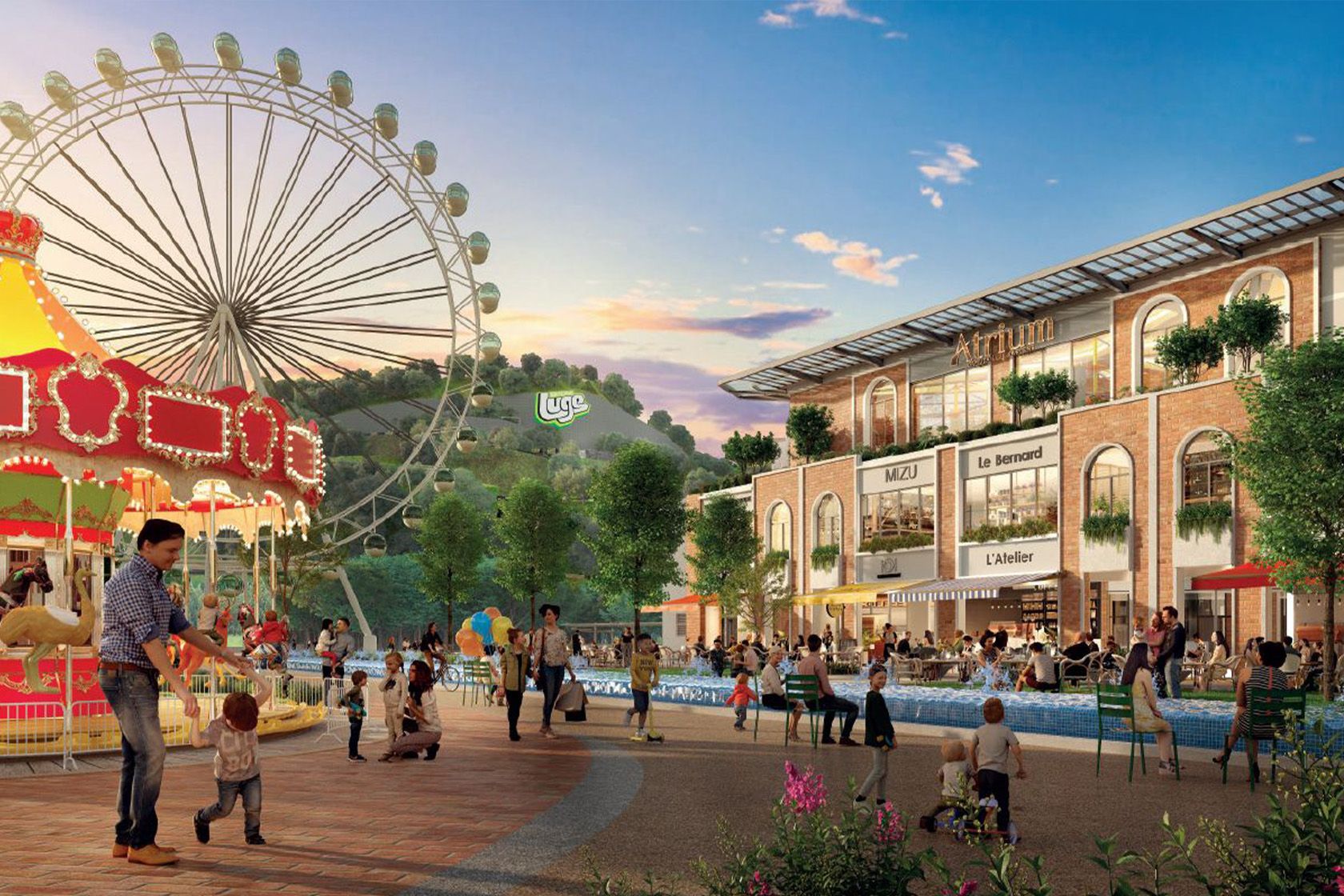
An artist’s impression of the Atrium at Gamuda Gardens, a newly launched integrated retail-tainment hub at Gamuda Luge Gardens
In Australia, we have already completed one project, 661 Chapel Street. Two more ongoing projects — The Canopy on Normanby and Fareham, both in Melbourne — are scheduled to be completed next year.
We are actively working with Gamuda Engineering, which has several infrastructure works in Australia, to tender for a few integrated station developments there. The challenge in Australia has always been the high construction cost. In order to be more sustainable, we work together to leverage each other’s strengths to reduce costs.
At the same time, it allows us to strengthen our knowledge in terms of international standards. For example, for 75 London Wall, we target three sustainability performance ratings — BREEM ‘Outstanding’, WELL Core ‘Platinum’ and NABERS UK 5 Star Design.
For the current year, what updates are there for your ongoing and pipeline projects?
For Malaysia, the property activities will remain in Gamuda Cove and Gamuda Gardens in the Klang Valley, as well as Horizon Hill in Johor. Everything in Johor is doing very well.
We acquired 336 acres of land situated to the south of Gamuda Cove for RM248.7 million, with plans to develop landed homes and commercial properties with a GDV of RM2.2 billion. Then, for Gamuda Gardens, we acquired 532 acres for RM360 million for a mixed-use development with a GDV of RM3.3 billion over a 10-year period.
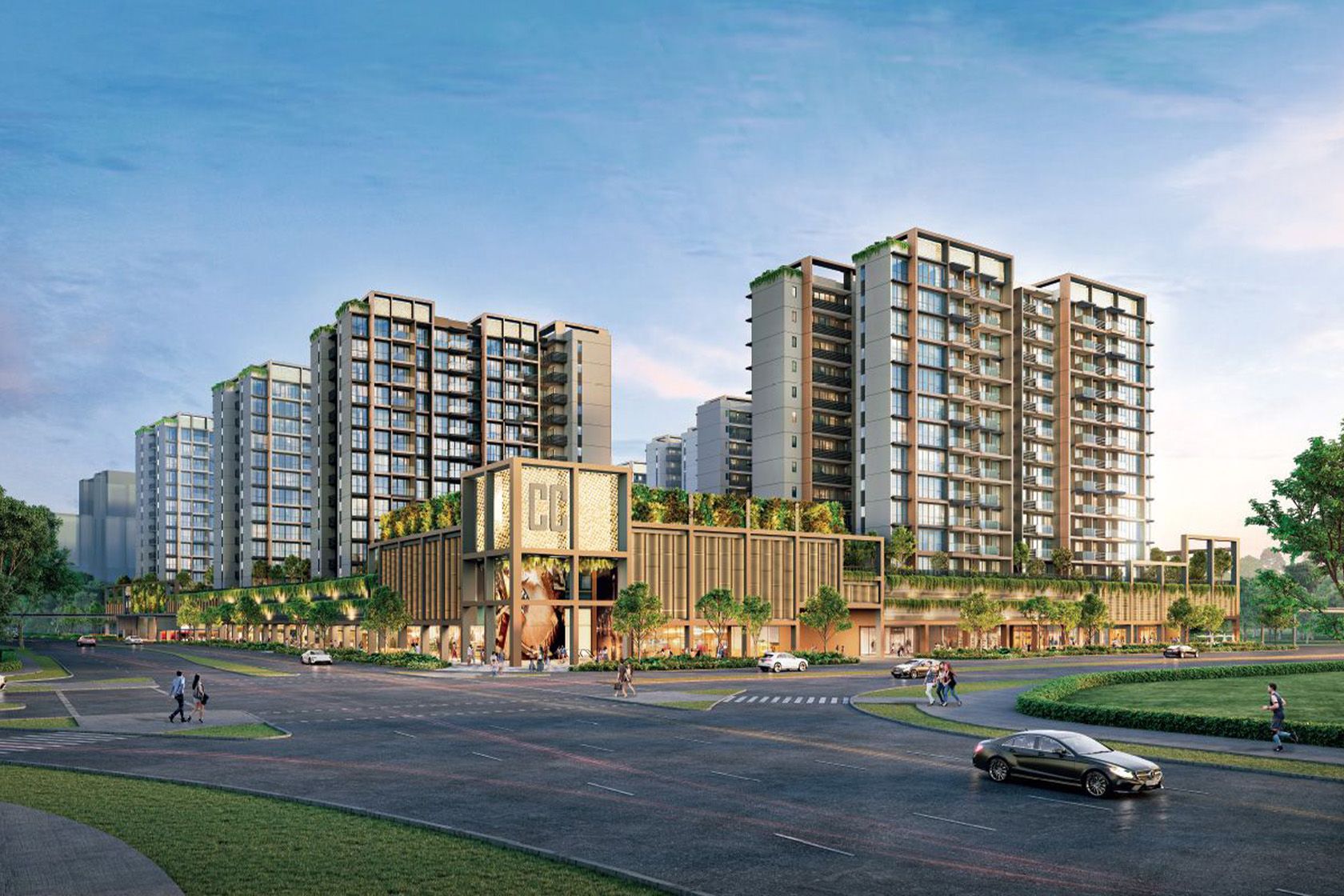
In Singapore, the yet-to-be-named project at Chencaru Close is located in Yishun and will feature a mixed-use development with private residential condominiums, anchored by community facilities such as a hawker centre and bus interchange (Pictures By Gamuda Land)

Hai Phong, a port city and Vietnam’s third largest city, which is about 1½ hours from Hanoi, will see our new launch called The Ambience with RM1 billion in GDV. There is also Springville with a GDV of RM1.8 billion, which is located near Ho Chi Minh City’s upcoming Long Thanh International Airport.
In Singapore, we will launch the Chencharu Close land next year. It is located just 450m from Khatib MRT station, where it takes a 20-minute connection to Orchard Road.
We are also working to redevelop the old Taylor’s College campus in SS15 Subang Jaya. We partnered with Taylor’s Assets, the property investment and asset management arm of Taylor’s Education Group, to redevelop the 2.9-acre freehold commercial site, with an estimated GDV of RM500 million, with serviced apartments and purpose-built students’ accommodation. We are planning to launch it in the middle of next year.
How has artificial intelligence (AI) and digitalisation benefited your business?
The group, not just Gamuda Land, has been working closely with Google. We have this GL Connect, where potential customers can interact with the AI assistant, view unit layouts and customise the details of their dream homes. It provides a guide to the purchasers as sometimes, it is difficult for them to come to the gallery to meet the sales staff. With AI, it allows them to visualise their future home.
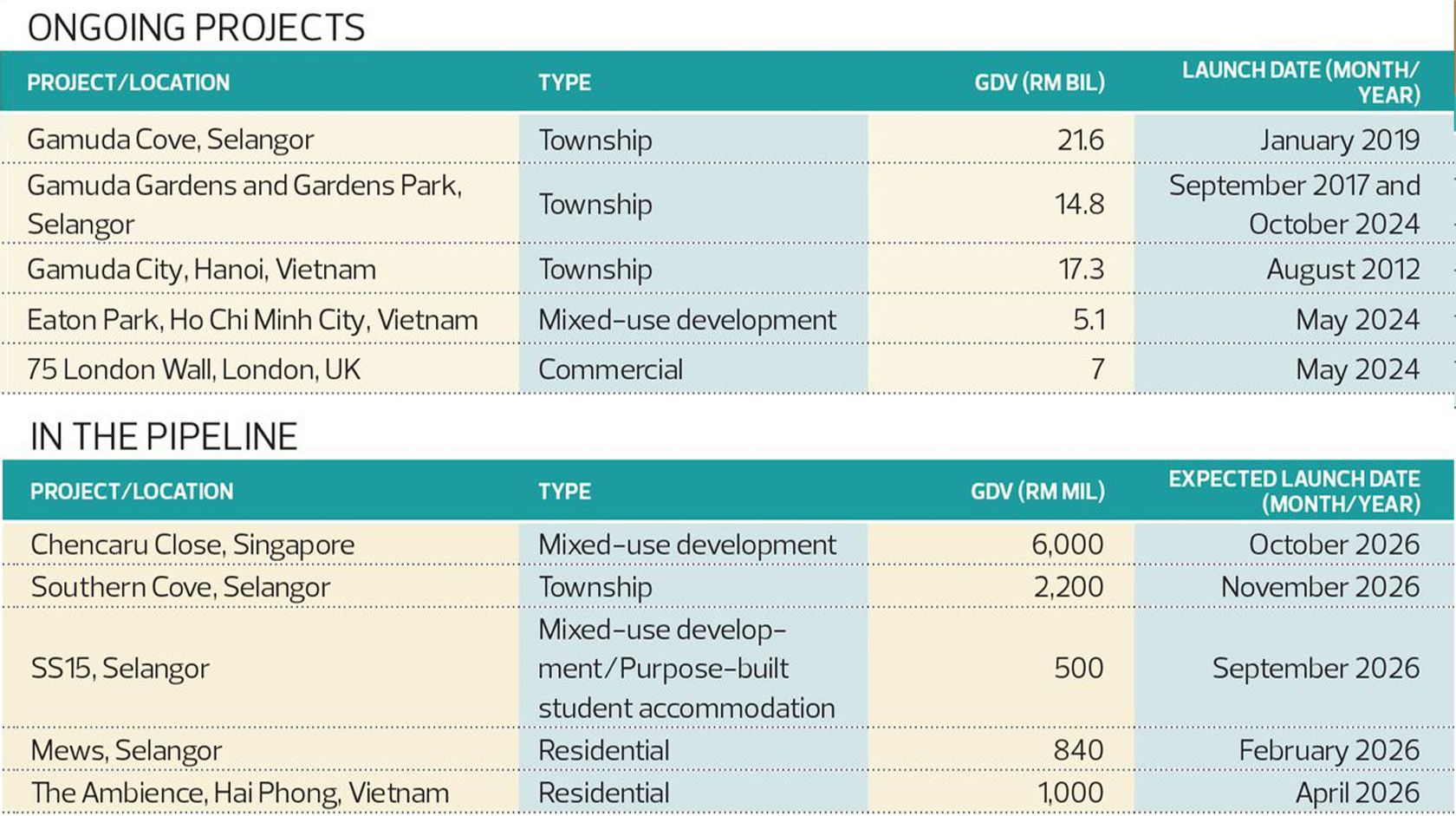
Internally, we had the Gamuda Digital Integration System, which allows us to research lessons from the past so we don’t repeat the same mistakes. Basically, this internal system holds the knowledge of Gamuda. If anyone in the group wants to know something, say, about engineering, you can get the information and vice versa.
We created an in-house AI chatbot system called Bot Unify for everyone to find and manage information across the group. It connects directly to Microsoft SharePoint, so employees can simply ask questions in plain English and get instant answers.
We have AI to personalise the customer experience. Our system learns about the buyers’ preferences and then gives relevant suggestions to our sales team so we have a predictive recommendation engine that can suggest township services and upgrades, even before customers think about them. It makes engagement proactive, not reactive. It just makes things more efficient.
As for the concern about losing the human touch because of AI, human touch for me is not just about sales. It is always from the point you come to the gallery, the after-sales interaction and even during events. That is why we don’t call our staff, sales staff. We call them relationship associates or RAs. Their job is to address all the needs of customers, whether you buy a house or not. Because now, if you look at our business, we have moved beyond selling houses. We have a lot of placemaking, and every single touch point is how you portray yourself as a community developer.
The RAs will assist purchasers from the beginning to the end of the whole purchasing process. They will also follow up if the purchasers have any problems.
We also have the GL Lifestyle App, which we launched about two years ago, as well as the upcoming AI Concierge. Previously, we used the app to register visitors. But now, we have evolved to a stage [with GL Lifestyle App] where you can book facilities, you can get updates on what the commercial tenants are selling and the latest promotions.
The upcoming AI Concierge will offer instant help, multilingual support from checking café hours to answering queries on the townships, all in one place. It will help residents feel supported and connected, and give us useful information to improve our townships.
As the company grows, how do you maintain corporate culture?
When a company grows, it doesn’t mean you need to hire more people, because when we adopt more AI, our efficiency increases. For example, without ChatGPT in the past, I used to take three to four days to draft a paper. But now, I can draft a paper in half an hour. You become more efficient, and that’s why AI adoption for the group is important. That gives us more efficiency and speed in our work.
As for the welfare of the group, we have launched a number of initiatives in the last two years. For example, we have launched a No-Friday-Meeting initiative and the Right-to-Disconnect policy, which encourages employees to switch off after working hours and on weekends to support their mental well-being and respect their personal time. We also send out anniversary cards, birthday cards every year, and we have regular team building events.
There is also a no-blame culture. Things happen, so just look for a solution. The moment you blame, that’s where the defensiveness comes into the picture. Today, everyone talks to each other like family. The event that really brought everyone together was the GLympics Team-Building Tournament. It was an inter-department event with different sports. It helped develop a stronger organisational culture.
Also, we don’t force staff to come to the office. As long as you get a job done, it’s okay. To avoid people taking advantage of this, I set the expectation, like they should be able to answer calls or reply texts during working hours. There is a 360° rating, where everyone — from your superiors to your peers — can rate you. You get constant feedback across the group.
What are the future plans for Gamuda Land?
One thing that I want to share is about the next generation. Two years ago, we launched the HOT, or Heroes of Tomorrow, campaign where we introduce children to sustainability in a fun and engaging way. With support from Gamuda Parks, our architects and IBS (Industrialised Building System) team, the children learnt about biodiversity and conservation with hands-on activities to show innovative and sustainable construction methods. This fosters early environmental stewardship and sparks curiosity about green building practices.
We are also going to launch Business Get Set Go Junior, a programme to expose kids to business opportunities. Let them learn how to pitch their ideas and then we have investors to invest their money in the ideas.
We want the next generation to know about Gamuda Land. Therefore, we are having an in-house children’s YouTube programme called GL Ranger Edutainment Series, where we teach the kids about the environment like tree planting and community development, making learning and sustainability concepts fun, relatable and easy to understand.
Related Stories
Incorporating biophilic design in a holistic manner
06 September 2022
by The Edge
Building for the Future
02 September 2022
by The Star
Innovative Solutions for Quality Housing
31 January 2023
by The Star

